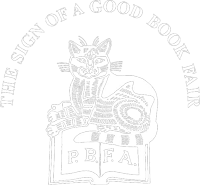In the uncommon dustwrapper.
WILSON, Edmund ~ The Wound and the Bow
FIRST UK PRINTING. Martin Secker & Warburg Ltd., London: [c.1942]
8vo., crimson cloth, spine lettered in gilt; complete in the unclipped John Bunting dustwrapper (15s. net); featuring a black and terracotta archer motif to front panel; THE BOOK very good to near-fine, slightly pushed at spine tips; THE WRAPPER with some overall shelf darkening, creased along folds with some nicks, closed tears, and some larger chips to ends, the deepest at spine head (1.5cm in depth), not affecting title. The wrapper is protected in a removable Brodart archival cover. First UK edition, first printing. A collection of detailed studies, the subjects ranging from Dickens (the mystery of Edwin Drood) to Kipling (what happened to his literary career?), Edith Wharton to James Joyce (what 'Finnegan's Wake is actually about), and including the author's celebrated essay, 'Hemingway: Gauge of Morale' (which the subject did not care for). "With Hemingway, courage and strength are always thought of in physical terms, so that he tends to give the impression that the bullfighter who can take it and dish it out is more of a man than any other kind of man", he wrote, "But ideas, however correct, will never prevail by themselves: there must be people who are prepared to stand or fall with them". "his heroes are almost always defeated physically, nervously, practically: their victories are moral ones", he continues, "The principle of the Bourdon gauge, which is used to measure the pressure of liquids, is that a tube which has been curved into a coil will tend to straighten out in proportion as the liquid inside it is subjected to an increasing pressure." Each of the essays contained here similarly centre around the concept of art and suffering. Wilson was a distinguished American writer, and widely regarded one of the most important literary critics of the 20th century. The title derives from Sophocles' play 'Philoctetes', in which the hero suffers from a foul-smelling wound while equipped with an invincible bow. F. Scott Fitzgerald later called Wilson "the literary conscience of my generation." Scarce, especially so in the dust wrapper. The vast majority of the print run was destroyed during the Second World War bombing.
BINDING: Hardcover
CONDITION: Near Fine
JACKET: Good ++
£450



